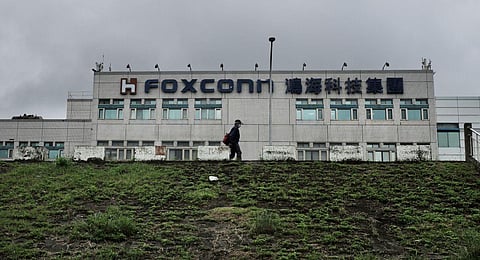

Taiwanese company Foxconn, the world’s largest contract electronic maker, is not new to charges of using discriminatory recruitment practices and workplace exploitation. The controversy has erupted again, this time in respect of the company’s Tamil Nadu plant, after an exhaustive Reuters report showed Foxconn had been deliberately excluding married women from its workforce.
The Reuters investigation, carried out over several months, revealed Foxconn had a deliberate but unwritten code that excluded married women from jobs at the iPhone assembly plant in Sriperumbudur. The company’s rationale, revealed by those interviewed, was that married women are less productive because of family responsibilities like “they have babies after marriage”!
High absenteeism, pressing family duties and even jewelry worn by married Hindu women are seen as impediments to higher production.
Following the story, Foxconn in a statement, said it “vigorously refutes allegations of employment discrimination based on marital status, gender, religion or any other form,” and insisted about 25 percent of its recruits in India were married women.
The controversy has now sharpened with Union government seeking a report from the Tamil Nadu government. It comes at a time when India is striving to become an alternative hub to China in the supply chain for digital products such as Apple’s iPhone. As it is, Apple, through its contractor Foxconn, is producing as much as 9 to 14 percent of its iPhones out of India. But is there a human cost involved?
The China trail
Just a peep into the China’s Foxconn trail, where the contractor still produces nearly 90 percent of iPhones, is quite shocking.
China Labour Watch, which studied the practices of Foxconn’s Chengdu iPhone factory in 2020-2023, said workers labour around the clock to meet impossible production targets. Investigators found Foxconn’s recruitment discriminating against applicants on the basis of race. Those from ethnic minority groups like the Uighur, Tibetan, Yi, and Hui were routinely weeded out. Pregnant female workers were also rejected during the recruitment process.
The company’s credibility first came into question when in 2010 there were a spate of suicides linked to low pay and brutal working conditions at the Foxconn City industrial park in Shenzhen. Mental illness and breakdowns were common, and the answer to the problem was to hang out nets under the ledges of overcrowded dormitories to prevent workers from jumping to the ground!
In a long read, the magazine Rest of The World has documented the life and working conditions at Foxconn’s compound in Zhengzhou through conversations stretching over several months with a worker nick-named ‘Hunter’. The ‘iPhone City’ facility makes about half of the world’s iPhones, covers an area of 5.6 KM, and at full capacity employs some 200,000 workers.
‘Hunter’ describes in detail how in a normal 10-hour shift he had to attach a tiny cable to the back of an iPhone cover, which charges the battery, and then screw it into place with two tiny screws for every iPhone. His target of 600 phones and 1,200 screws per shift can only be done at a relentless pace and without rest or toilet breaks. Falling behind the production schedule meant abuse by supervisors, and the loss of bonuses and stoppage of overtime.
‘Hunter’ also talks of the windowless conditions and being forced into compulsory living on campus due to pandemic restrictions. Many workers fled for home after dodging guards and climbing the fences; sometimes there was outbreaks of violence when company executives forced an unbearable pace of work. “iPhones are made in hell”, ‘Hunter’ concludes.
Dignity of labour
For India, Apple’s diversification strategy away from China is godsent. Not only will Apple’s presence work as a cascading effect for new investment in India, but it also means 150,000 new jobs at Foxconn’s facilities.
Moreover, there is a pipeline of semiconductor units coming up, including the American chipmaker Micron that has committed US$825 million to build a facility in Sanad, Gujarat. By 2026, the semiconductor industry in India is expected to generate over 300,000 jobs, encompassing diverse roles such as testing, engineering, software development, system circuits, validation, and operations.
This puts the government on the horns of a dilemma. The reason these companies are investing in India is to save on wages for well-trained tech workers. Foxconn pays $200 or around Rs 17,000 a month to its average assembly worker in Sriperumbudur. Though 20 times cheaper than what it would pay for a worker in California, it is still creating thousands of jobs in India.
On the other hand, can the government, the custodian for protecting its citizens’ rights, permit violation of basic labour codes? Poor wages is one thing. But can the government allow downright humiliating and discriminatory workplace practices like exclusion of married women? And then there are the laws of the land that have to be respected. For instance, the Equal Remuneration Act, 1976 says there can be no discrimination in wages between men and women. These early signs should be taken seriously. India can’t allow itself to be another sweatshop. The primary investors – the Apples and the Amazons – know it all; and they must be asked to commit themselves to a basic code that respects the dignity of labour. Foxconn can’t be allowed free passage as it had in China.